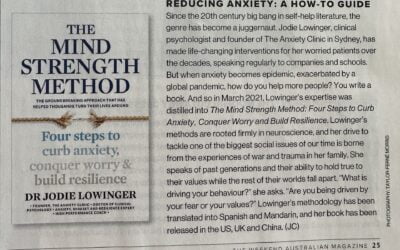What’s the difference between stress and anxiety? How do you know which one you are experiencing? In this article, I explain stress – the good, the bad and the ugly, how it differs from anxiety, and share some helpful strategies to cope with it.
What is Stress?
Stress is the normal response our body has to change. It can be positive or negative. It can help us rise to meet challenges. It is what keeps us on our toes, prevents us from making costly mistakes and sharpens our concentration.
However, too much stress or experiencing stress over extended periods of time can leave us feeling frazzled, overloaded, exhausted, unappreciated, agitated or over-reactive.
Good Stress
The technical word for good stress is ‘eustress’. Typically, with stress you are focused on your goals, not focused on threats. This type of stress can be energising and give rise to that feeling of being ‘pumped’ or ‘in the zone’. It can be that extra boost of adrenaline needed to get things done.
Bad Stress
Problems arise when stress levels become very high or we remain stressed for long periods of time. This can lead to distress, where stress stops being helpful and starts causing problems. Distress can disrupt our body’s internal balance and impact our health, mood, relationships, productivity and overall life.
Chronic Stress
Our bodies are designed to react to stress with the ‘fight or flight’ response. When this natural stress response becomes activated over prolonged periods, it can wreak havoc on our physical and emotional health. Over long periods, cortisol and adrenaline can build up in the bloodstream and compromise our physical health such as our immune system, digestive system or reproductive system. Prolonged stress can increase the risk of heart attacks, stroke and accelerate the aging process. This may lead to physical symptoms such as headaches, an upset stomach, high blood pressure, chest pain, sexual dysfunction and sleep problems.
You can also experience emotional problems from prolonged high stress. These problems often include depression and anxiety.
The Difference Between Stress and Anxiety
There’s a fine line between stress and anxiety. Since anxiety and stress have similar symptoms, it is important to be able to understand the difference between the two and how they feed into one another.
Stress is our response to positive or negative changes that may or may not be within our control. The less control we feel we have over a stressful situation, the more intense our reaction is likely to be. Work, family, social relationships and finances tend to be the leading causes of stress. Causes of everyday stress may not even seem particularly threatening, but when this stress builds over time it can lead to burnout and other problems.
Anxiety, on the other hand, can be characterised by persistent worry thoughts that do not go away even in the absence of a stressor. Anxiety can be a result of prolonged stress and can coincide, be caused by or contribute to depression. Anxiety at extreme levels can be experienced as a panic attack. Though stress and anxiety have these differences, and stress does not manifest itself as anxiety in all people, anxiety and stress can have similar or identical characteristics: insomnia, fatigue, difficulty concentrating, muscle tension and irritability. As with stress, it is part of being human to experience anxiety at varying levels of severity. Anxiety that causes prolonged fear, suffering and avoidance in your life and may interfere with your day-to-day functioning is classified as an anxiety disorder.
How to cope with stress and anxiety
The good news is that anxiety is highly treatable and there are many ways to build your tolerance of stress. Both mild stress and mild anxiety respond well to healthy routines that include exercise, a nutritious and varied diet, good sleep, periods of relaxation and mindfulness.
While it is impossible to eliminate stress completely from your life, you can build your capacity to cope with it. This is called your ‘distress tolerance’. By understanding that stress is a natural and normal part of being human, you can focus less on getting rid of the feeling of stress and more on responding in helpful ways rather than unhelpful ways.
Want to know more?
To find out more about how to overcome stress and anxiety, you can pick up a copy of my book, The Mind Strength Method: Four Steps to Curb Anxiety, Conquer Worry and Build Resilience.






